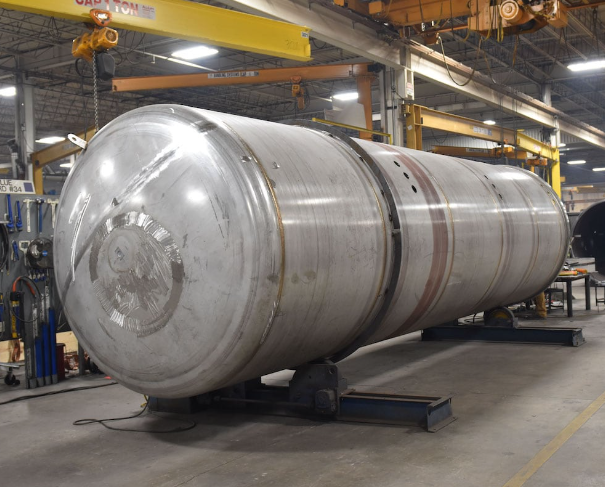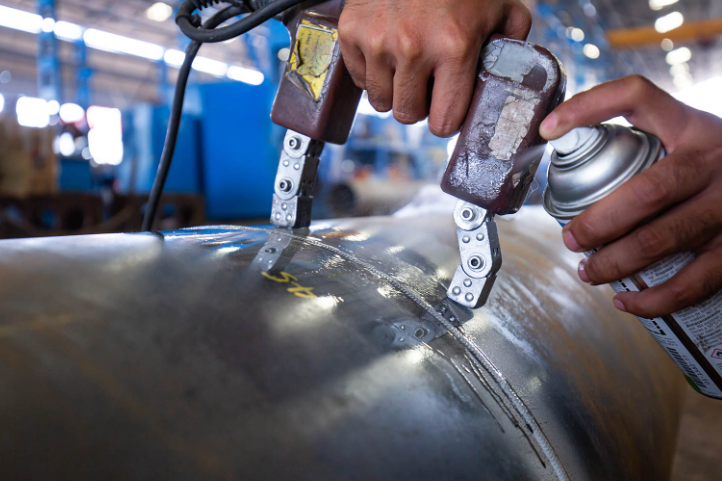What is Carbon Steel Plate
653Carbon steel plate is a durable, versatile material used in construction, manufacturing, and industrial applications for structural support.
View detailsSearch the whole station
In industries like construction, energy, and manufacturing, selecting the right steel plate isn’t just a matter of strength — it’s about safety, compliance, and long-term performance. Among the most common steel categories are structural steel plates and pressure vessel steel plates. While they may appear similar, their characteristics, applications, and regulatory requirements vary significantly.
This article will walk you through a clear comparison of these two types of steel plates, helping you make confident procurement decisions whether you’re building a bridge or manufacturing a high-pressure storage tank.

Structural steel plate is engineered for load-bearing applications and is typically used in the construction of buildings, bridges, offshore platforms, and heavy machinery. It is valued for its high yield strength, weldability, and cost-effectiveness.
Key Properties:
Common Standards:
Typical Applications:
Want to explore structural steel grades?

Pressure vessel steel plate, on the other hand, is specifically designed to contain gases or liquids under pressure. These plates must meet stringent safety and toughness standards due to the critical nature of their use.
Key Properties:
Common Standards:
Typical Applications:
Interested in boiler or pressure vessel plates like A516?
| Feature | Structural Steel Plate | Pressure Vessel Steel Plate |
|---|---|---|
| Primary Use | Load-bearing structures | Storage of pressurized fluids |
| Yield Strength | Moderate to High | Moderate |
| Toughness | Moderate | Very High (especially at low temps) |
| Typical Standards | A36, A572, S355 | A516, P355GH, SA387 |
| Fabrication | Cut, welded, formed | Must be certified for pressure integrity |
| Cost | Lower | Higher (due to stricter specs) |
Q1: Can I use structural steel in place of pressure vessel steel?
Not advisable. Pressure vessel steel undergoes rigorous testing and certification to ensure it won’t fail under internal pressure. Using structural steel for pressure applications can lead to catastrophic failure and legal liabilities.
Q2: What certifications should I ask for?
For pressure vessel steel, look for certifications like EN10204 3.1/3.2, ASME, and PED compliance. Structural steel typically requires mill test reports (MTRs) and compliance with EN or ASTM standards.
Q3: Which plate is easier to source globally?
Structural steel plates such as A36 and S355 are widely available. Pressure vessel plates, especially in higher grades, may require sourcing from certified mills.

Understanding the difference between structural and pressure vessel steel plates is essential for safe and cost-effective project execution. If your application involves high-pressure containment, certified pressure vessel steel is non-negotiable. For load-bearing frameworks, structural plates offer a balanced mix of strength and affordability.
Looking to source reliable material for your next project? CJM offers a broad range of structural and pressure vessel plates with full certification and global delivery.
WhatsApp: +86 181 9190 6640
Email: info@cjmstainlesssteel.com
Carbon steel plate is a durable, versatile material used in construction, manufacturing, and industrial applications for structural support.
View detailsCompare AR500 vs AR550 vs AR600 steel plates. Learn differences in hardness, toughness, price, and applications to choose the right wear-resistant steel.
View detailsCarbon steel pipe is strong, durable, and widely used for transporting fluids and gases in various industries.
View detailsLearn the Q195 steel equivalent grades (ASTM, JIS, EN), compare Q195 vs Q235 properties, and how to source Q195 steel plate or coil at wholesale prices.
View details
HelloPlease log in